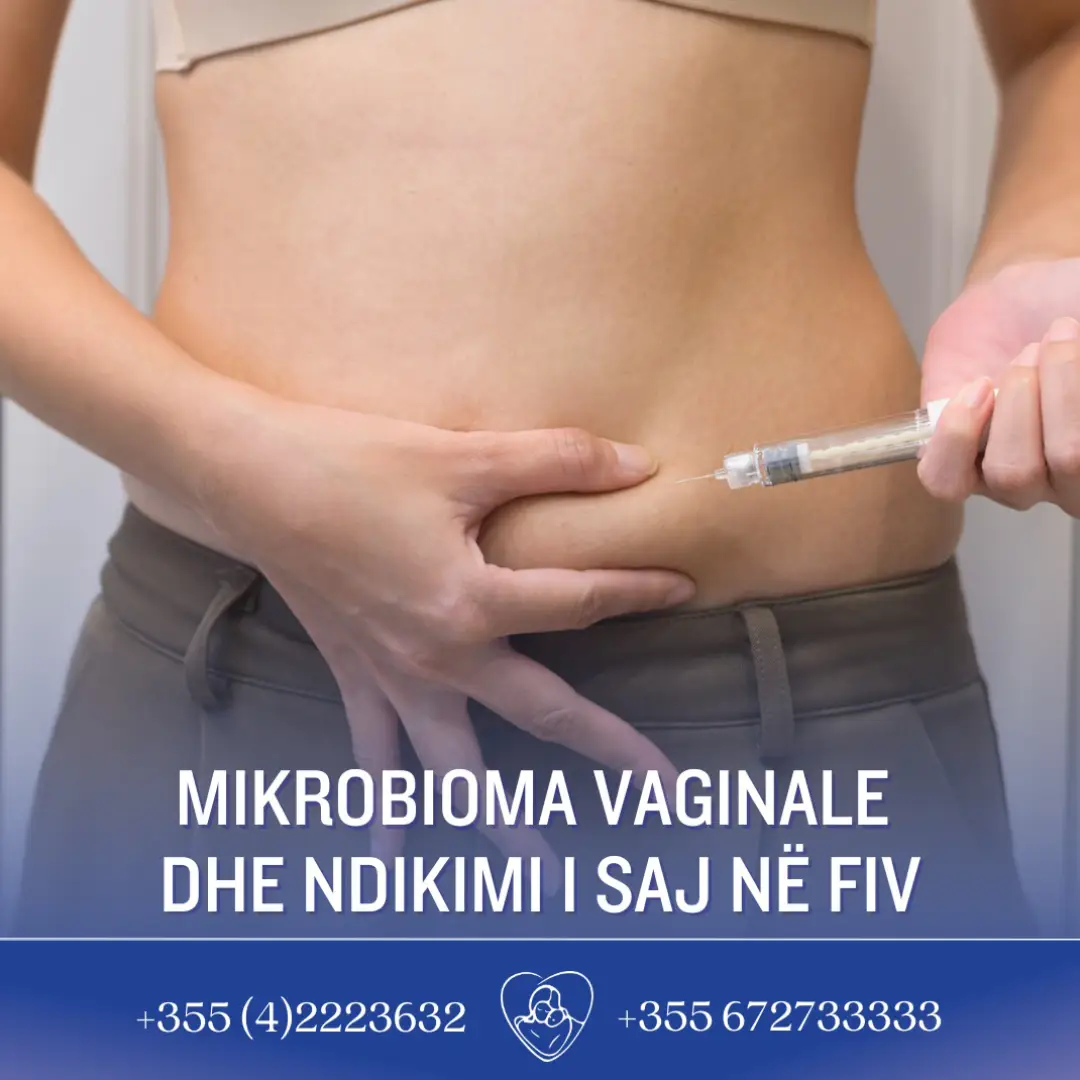Female reproductive health is a field with many complex aspects. While we often focus on the menstrual cycle, hormones, or the anatomy of reproductive organs, a crucial element is often neglected, despite having a major impact: the vaginal microbiome. This living ecosystem, composed of billions of microorganisms, including bacteria and fungi, naturally lives in the vagina and plays an absolutely critical role in maintaining your reproductive health and in the success of your journey towards pregnancy.
At Gliozheni Clinic, we pay maximum attention to all factors affecting fertility and pregnancy health. Understanding and managing the vaginal microbiome is an integral part of our comprehensive approach to your care.
What is the Vaginal Microbiome and Why is it Important?
The vaginal microbiome refers to the complete collection of microorganisms that populate the vaginal mucosa. A healthy microbiome is characterized by the dominance of bacteria called Lactobacillus. These “good” bacteria perform several essential functions:
- Produce lactic acid: This acid creates an acidic environment in the vagina (low pH, usually 3.8-4.5). This acidic environment is a powerful natural protective mechanism, inhibiting the growth and multiplication of harmful bacteria and pathogens, which often cannot survive at this acidity level.
- Form a physical barrier: Lactobacilli also form a protective layer on the vaginal wall, preventing the attachment and invasion of unwanted microorganisms.
- Modulate the immune response: They interact with the local immune system, helping to maintain a healthy balance and reduce excessive inflammation.
An imbalance in this ecosystem, where Lactobacilli are replaced by other bacteria (as occurs in bacterial vaginosis), can lead to an increase in pH and a compromise of natural protection.
Critical Role of the Vaginal Microbiome in Fertility and Pregnancy
A balanced and healthy vaginal microbiome has profound implications for your ability to conceive and carry a successful pregnancy:
- Optimization of the environment for conception: A healthy and acidic vaginal environment is necessary for the motility and survival of spermatozoa during their journey towards the egg.
- Pelvic Inflammatory Diseases (PID): Untreated vaginal infections, such as bacterial vaginosis (BV) or recurrent fungal infections, can spread upwards into the reproductive system, causing inflammation and damage to the fallopian tubes. This damage can block the tubes, preventing the egg from meeting the sperm and increasing the risk of ectopic pregnancy.
- Complications in Pregnancy: Microbiome imbalances have been linked to an increased risk of preterm birth, premature rupture of membranes (PROM), chorioamnionitis (infection of the placenta and amniotic fluid), and recurrent spontaneous abortions.
- Uterine Microbiome: Recent research has revealed the existence of a microbiome even in the uterus. A healthy uterine microbiome, dominated by Lactobacilli, has been linked to higher rates of embryo implantation and successful pregnancies.
- Impact on IVF (In Vitro Fertilization): For couples undergoing fertility treatments such as IVF, optimizing the vaginal and uterine microbiome can significantly improve outcomes. A microbiome imbalance has been identified as a contributing factor to recurrent implantation failures and early pregnancy losses. Addressing these imbalances through specific testing and treatments can be a vital strategy to increase the chances of success.
- Gut-Vagina Connection: The health of the gut microbiome also affects the vaginal microbiome. A healthy diet and good gut function contribute to a balanced vaginal microbiome.
Signs of a Disrupted Microbiome and When to Seek Help
It is important to pay attention to your body. Common signs of a disrupted vaginal microbiome include:
- Unusual vaginal discharge: Changes in color (gray, green), consistency, or quantity.
- Unpleasant odor: Especially a fish-like odor, which may worsen after sexual intercourse.
- Itching or burning: In the vaginal area.
- Discomfort during sexual intercourse.
- Recurrent urinary tract infections.
If you experience any of these symptoms, or if you have had recurrent implantation failures or spontaneous abortions, it is essential to consult a specialist.
How Can Gliozheni Clinic Help You?
At Gliozheni Clinic, we are equipped to evaluate and treat the health of your vaginal microbiome, which is an essential step in your journey towards pregnancy. We offer:
- Advanced diagnosis: Through specialized laboratory analyses of vaginal secretions, we can accurately identify the composition of your microbiome and detect any imbalances or presence of pathogens.
- Personalized consultation and plan: Based on the analysis results, we create a personalized treatment plan, which may include:
- Specific probiotics: To replenish and maintain Lactobacillus bacteria populations.
- Antibiotic/antifungal therapy: If certain infections are identified.
- Lifestyle counseling: Including dietary and hygienic recommendations to support a healthy microbiome.
- Optimization of pre-conception health: We integrate microbiome evaluation into pregnancy planning and pre-conception counseling, ensuring your reproductive environment is optimal.
- Support for fertility treatments: For women undergoing IVF or other fertility treatments, we offer strategies to optimize the microbiome, increasing the chances of successful implantation and a healthy pregnancy.
The health of your vaginal microbiome is a cornerstone for fertility and a successful pregnancy. Do not underestimate its role.
For more information, or to book an appointment for a consultation and vaginal microbiome evaluation, please contact us at:
Gliozheni Clinic
Tel: +355 4 222 36 32
Cel: +355 67 27 33 333
We are here to provide you with the best care and to help you on your journey towards parenthood!






